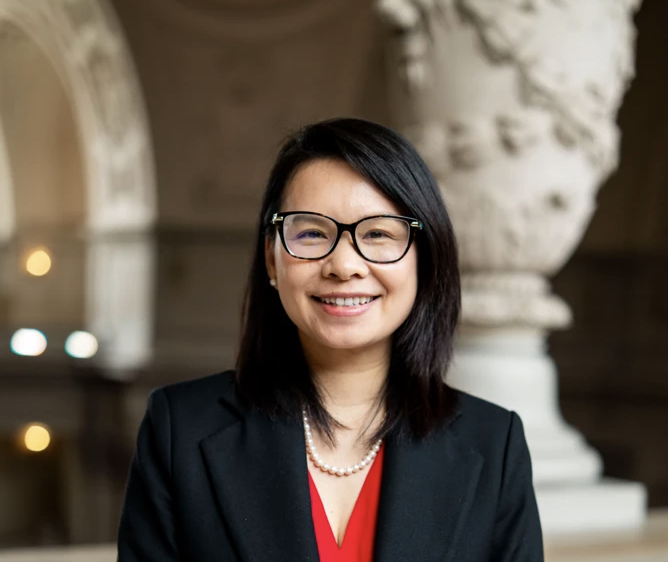The Land Use and Transportation Committee, by a 2-1 vote, to send to the full Board of Supes a measure that would allow developers to convert office space into housing without paying any of the normal impact fees, including for affordable housing.
The vote came after community groups, including the South of Market Community Action Network and SOMA Pilipinas urged the committee members to reject the measure unless the Priority Equity Districts and the Filipino Cultural District were exempted.

In reality, some of the committee members said, only a handful of projects are likely to go forward any time soon under the new rules, meaning that only a small number of new housing units will be added to the city’s stock.
But the vote, if approved by the full board, sets a precedent that the city is willing to favor private market-rate developers and offer them whatever tax and fee breaks are needed to make projects for rich people profitable enough to move forward.
The legislation is pretty sweeping: It would allow a developer to demolish an existing building, replace it with a luxury housing complex, and pay none of the fees the city usually charges for child care, Muni, and affordable housing.
Although several developers said that these and other recent tax breaks would get projects moving again, none of the supes asked for, and the developers didn’t offer, any pro forma data to show that projects only worked with these concessions.
So we have no idea how much profit the developers or the investors will make off these tax cuts.
One speaker noted that the city has already reduced fees and reduced the requirements for affordable housing, and that the state has already offered property tax breaks for office to housing conversions. But very little housing is under construction in the city.
“How many more giveaways do we need before they start building?” the speaker asked.
Angelica Cabande, the executive director of SOMCAN, said that the proposal seems to contradict the city’s own policies encouraging affordable housing. “This says it will increase affordable housing while removing affordable housing fees,” Cabande said.
In a remarkable statement, Sup. Matt Dorsey, one of the sponsors of the legislation, said that “removing fees for affordable housing does not mean the city is abandoning its commitment for affordable housing.”
Sup. Myrna Melgar said that she is “losing sleep” over the fate of downtown, and the hotels, retail spaces, and restaurants that provided union jobs. “We know our balance of housing and office space [in the downtown area] was wrong,” she said.
Other speakers echoed that, saying that the city wouldn’t be in this mess if the Financial District allowed housing, not just offices.
But nobody mentioned why that happened: Many of the groups like SPUR, which sent two speakers to endorse it, opposed any mixed-use rules because they would have cut into the massive profits that developers made building offices.
In the 1980s, every inch of space in the Financial District was seen by the likes of Walter Shorenstein, who became a billionaire building offices, as potential office space. Anything else brought a lower financial return.
Now the developers are saying that they need tax breaks to build housing for very rich people downtown. Maybe that’s part of the way to revitalize the area; maybe the Financial District is going to become what parts of Manhattan are: Highrise enclaves for the multimillionaires.
The impacts on the existing residents of SOMA will be pretty devastating.
Let’s at least admit that’s the plan, instead of talking about housing affordability.
Sup. Chyanne Chen said that the plan did not include measures to stabilize existing vulnerable communities, and that “there has not been enough community engagement.” She said her office has asked for information about the impacts on Priority Equity Districts and the Cultural District, and hasn’t received an answer.
She asked that the measure be continued until Feb. 24.
Her motion to continue was defeated, with Melgar and Sup. Bilal Mahmood voting no. Then Melgar and Mahmood voted to send the package to the full board; Chen dissented.






